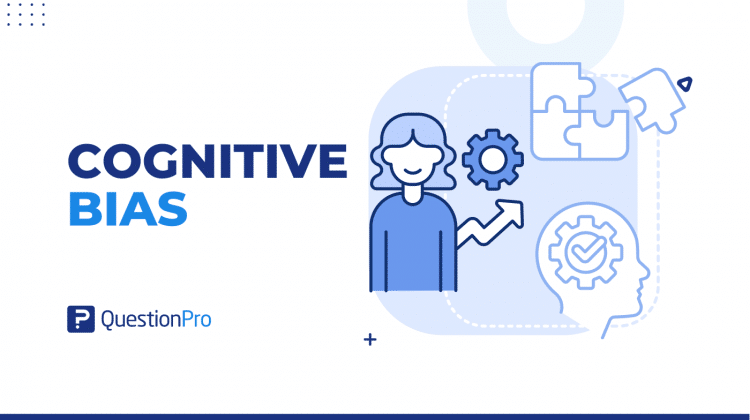 Reading Time: 3 minutes read
Reading Time: 3 minutes read
As a market research company, we understand the importance of objectivity in our work. Our clients rely on us to provide unbiased insights into their customers’ behavior and preferences. However, we also understand that human beings are not always objective in their thinking. Our brains are wired to make quick judgments and take mental shortcuts that can lead to errors in judgment and decision-making. This phenomenon is known as cognitive bias.
What is Cognitive Bias?
Cognitive bias is a phenomenon that affects everyone, from the average person on the street to the most experienced researchers. It refers to the various ways our brains interpret information and makes decisions based on that information. These biases can be unintentional and often stem from our preconceived notions, personal beliefs, or past experiences.
In the realm of market research, cognitive bias can have a significant impact on the validity and reliability of our findings. Market research is critical for businesses to make informed decisions, and any bias in the research can lead to flawed conclusions and ineffective strategies. It’s crucial for market research companies to be aware of and address these biases to ensure accurate results.
Types of Cognitive Bias
There are many different types of cognitive bias, and each can have a unique impact on research. For example, confirmation bias occurs when people seek out information that confirms their existing beliefs and ignore information that contradicts them. In market research, this can lead to a skewed sample or biased questions that reinforce the client’s assumptions.
Another common bias is the framing effect, which occurs when people make different choices depending on how information is presented. In market research, this can lead to biased results if questions are phrased in a way that nudges respondents toward a particular answer.
Here’s a summary of some of the types of cognitive bias that can impact research:
- Confirmation bias: seeking out information that confirms their existing beliefs and ignoring information that contradicts them.
- Framing effect: making different choices depending on how information is presented.
- Anchoring bias: relying too heavily on the first piece of information they receive.
- Hindsight bias: believing an event was predictable or should have been predicted after it has already occurred.
- Availability bias: overestimating the importance of information that is easily available to them.
- Selection bias: certain groups of people are more likely to be included in a study, leading to biased results.
- Recency bias: giving more weight to recent events or information, regardless of their importance.
- Overconfidence bias: being too confident in their own abilities or judgments, leading to poor decision-making.
- Bandwagon effect: when people’s beliefs or behaviors are influenced by the beliefs or behaviors of others in a group rather than based on independent thinking.
How to Do a Good Cognitive Bias Prevention Strategy
To mitigate the impact of cognitive bias on our research, we employ several strategies. One is to use a diverse sample of participants to ensure that we capture a range of perspectives and experiences. We also use randomized questions and designs to minimize the impact of framing effects. Additionally, we use trained moderators and carefully designed questions to ensure that we are not leading respondents toward a particular answer.
We also recognize that cognitive bias is not just a problem for our research but also for our client’s decision-making processes. That’s why we work closely with our clients to help them identify and mitigate bias in their own thinking. We provide training and workshops on cognitive bias and how it can impact decision-making.
At the end of the day, a cognitive bias is an inherent challenge in market research. However, by being aware of its impact and taking steps to mitigate it, we can ensure that our research provides the most accurate and valuable insights for our clients.
Conclusion
In conclusion, a cognitive bias is a natural human tendency that can have significant consequences in market research. By understanding the types of bias and employing various employee strategies to prevent and mitigate their impact, market research companies can ensure the validity and reliability of their findings.
Additionally, working closely with clients to raise awareness of cognitive bias and its impact on decision-making can help them make more informed and objective decisions. With these measures in place, market research can provide the most accurate and valuable insights for businesses to make informed decisions.
If you want to ensure the most accurate and valuable insights for your business, it’s essential to address cognitive bias in your research. Join QuestionPro today and leverage our powerful survey tools and resources to mitigate cognitive bias in your research.
Our platform offers a wide range of features to help you create diverse samples, use randomized questions, and design carefully crafted questions that prevent leading respondents toward a particular answer. Sign up now and get started on your journey to more reliable market research.




















